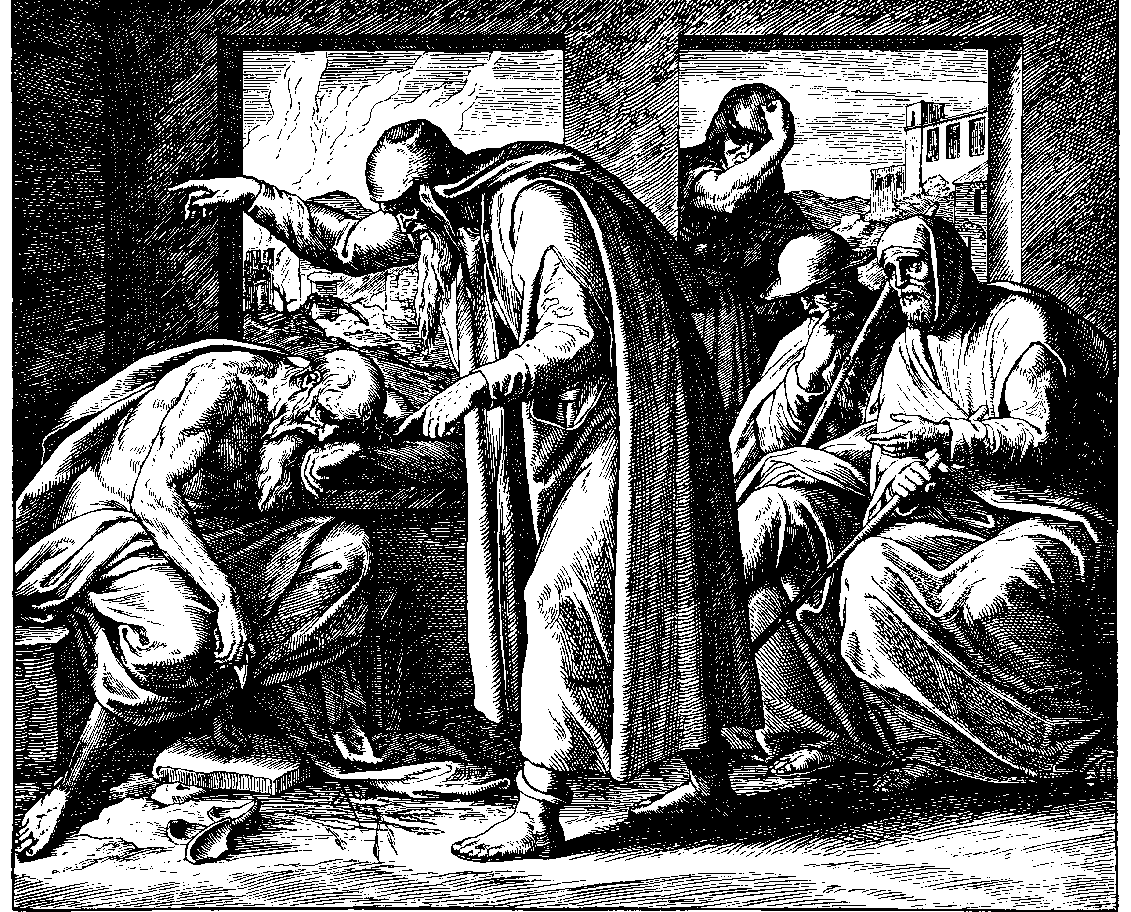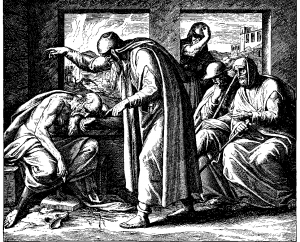
Psalm 102, Domine, exaudi orationem meam, et clamor meus ad te veniat
By Mary Abrahamson
O Lord, hear my prayer, and let my cry come unto thee
A prayer of the afflicted when he is overwhelmed, and pours out his soul to the Lord.

The previous psalms in this series have focused on the particular sins and also, more generally, upon the sinful nature of the psalmist. This psalm, however, takes a different approach. Here we meditate upon the brokenness of the world.
In this life there will be troubles. Natural disasters, broken relationships, societal demise, evil governments and regimes, terror of all varieties. All these can wear on the faithful, can sow seeds of doubt and despair, and can tax the emotional stamina of even the staunchest.
The first several verses of this psalm remind me very much of the illness we today call depression. But also more broadly, it hearkens to the despair we can all feel creeping in around the edges during difficult times. In this broken world, sometimes all we can do is lift up our hearts and minds in a prayer of surrender to God. Our spiritual welfare, our physical providence, and our whole being is God’s to use to work His will, even when we don’t understand it. So with the psalmist we pray,
Hear my prayer, O Lord,
And let my cry come to You.
Do not hide Your face from me in the day of my trouble;
Incline Your ear to me;
In the day that I call, answer me speedily.For my days are consumed like smoke,
And my bones are burned like a hearth.
My heart is stricken and withered like grass,
So that I forget to eat my bread.
Because of the sound of my groaning
My bones cling to my skin.
I am like a pelican of the wilderness;
I am like an owl of the desert.
I lie awake,
And am like a sparrow alone on the housetop.
Anyone who has suffered with depressive illness can understand the metaphor here. And probably most who have not can still appreciate the depth of affliction portrayed. The fog of days passing, with little or no cognizance, is indeed like smoke. The physical ailments that can come with a cycle of depression or times of worry can smolder in one’s bones to the point of physical illness and pain. A person so afflicted can feel a withering of his heart as he struggles with the bleak outlook. Sometimes it all seems so empty we can even lose interest in food or other aspects of our personal upkeep.
My enemies reproach me all day long;
Those who deride me swear an oath against me.
For I have eaten ashes like bread,
And mingled my drink with weeping,
Because of Your indignation and Your wrath;
For You have lifted me up and cast me away.
My days are like a shadow that lengthens,
And I wither away like grass.
These preceding verses remind me of the way the suffering Savior is described in Psalm 22. Jesus not only shared in our suffering, but He took our very suffering on Himself. Our very worst times of despair He bears along with us, and in fact completely in our stead. There are times when God allows affliction to come. But because Jesus partook of those times also, they are cleansed by Him, and so sanctified. Our atonement with God is complete, even in such depths of despair and despondency.
But You, O Lord, shall endure forever,
And the remembrance of Your name to all generations.
You will arise and have mercy on Zion;
For the time to favor her,
Yes, the set time, has come.
For Your servants take pleasure in her stones,
And show favor to her dust.
So the nations shall fear the name of the Lord,
And all the kings of the earth Your glory.
For the Lord shall build up Zion;
He shall appear in His glory.
He shall regard the prayer of the destitute,
And shall not despise their prayer.
Just as God restored the Old Zion, the Old Jerusalem, we of the New Jerusalem are also restored. We are not forsaken. “When the fullness of time was come, God sent forth His Son,” (Galatians 4:4).
There is such great imagery in the following paragraph, tied to so many different parts of Scripture. I’m going to break it into smaller chunks to make it easier to see.
This will be written for the generation to come,
That a people yet to be created may praise the Lord.
This section starts with the reminder that this message, this story, this Gospel is to be told to future generations. All through the Old Testament history God’s people are exhorted to teach their children, to pass on the message. After God gave the Law we see God telling the fathers to teach their children God’s Law and promises. God specifies as part of the annual Passover celebration the fathers repeat for the the children about God’s deliverance. On into the Gospels, Luke and John specify that they wrote their accounts to be passed on so that others might believe.
For He looked down from the height of His sanctuary;
From heaven the Lord viewed the earth,
To hear the groaning of the prisoner,
To release those appointed to death,
To declare the name of the Lord in Zion,
And His praise in Jerusalem,
When the peoples are gathered together,
And the kingdoms, to serve the Lord.
He weakened my strength in the way;
He shortened my days.
Next we are reminded that God looks down on us, on His people. He effects the doings of the world for the good of His Holy Name and His Kingdom, just as we ask of Him in the first three petitions of the Lord’s Prayer. We can see similarity to the words which at the beginning of his ministry Jesus quoted from Isaiah 61. The captives are released, the Name of the Lord is proclaimed.
I said, “O my God,
Do not take me away in the midst of my days;
Your years are throughout all generations.
Of old You laid the foundation of the earth,
And the heavens are the work of Your hands.
They will perish, but You will endure;
Yes, they will all grow old like a garment;
Like a cloak You will change them,
And they will be changed.
But You are the same,
And Your years will have no end.
The children of Your servants will continue,
And their descendants will be established before You.”
The Psalmist finishes up with a confession of several eternal truths. Our days are in God’s hands (Job 14:5). God’s strength is sometimes shown best in our weakness (II Corinthians 12:9). God’s time is not the same as our time (Psalm 90:4 and II Peter 3:8). God is faithful and does not change (Hebrews 6:17-18).
This Psalm presents a complete fabric showing the troubles in this world, but also God’s faithfulness. We cannot proclaim it more clearly than Jesus did the night He was betrayed, “In the world you will have tribulation; but be of good cheer, I have overcome the world,” John 16:33).
image in the public domain via Wikimedia Commons





One Comment
JennaT
Thank you, Mary!